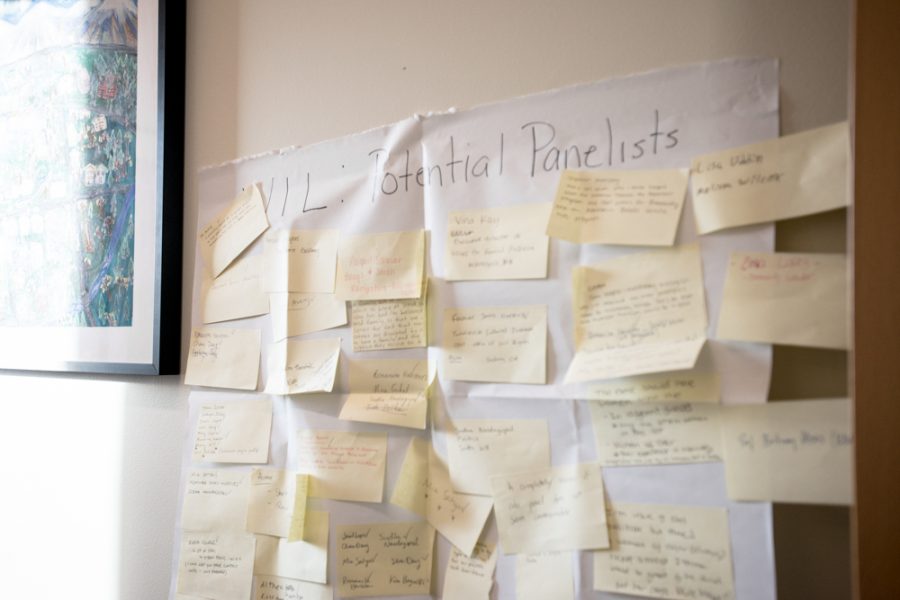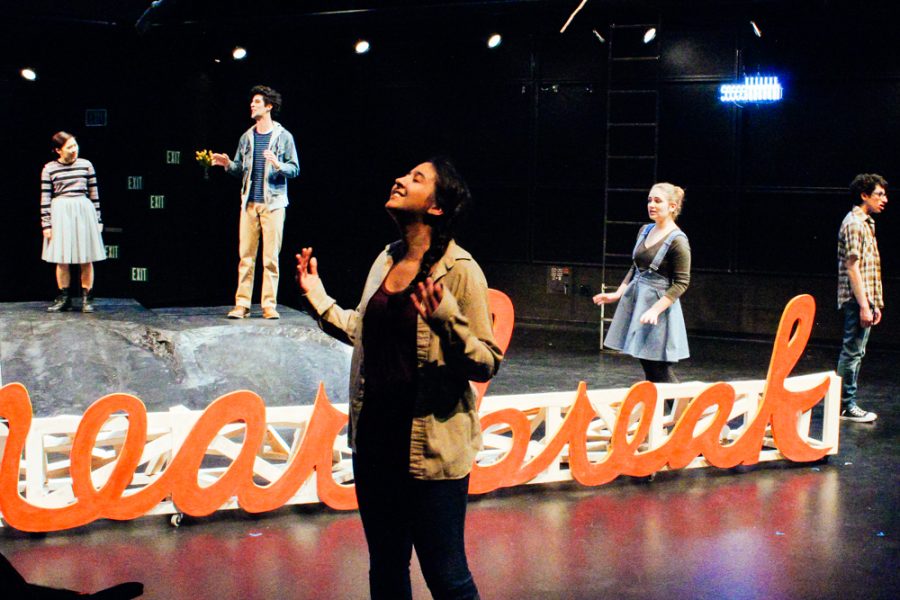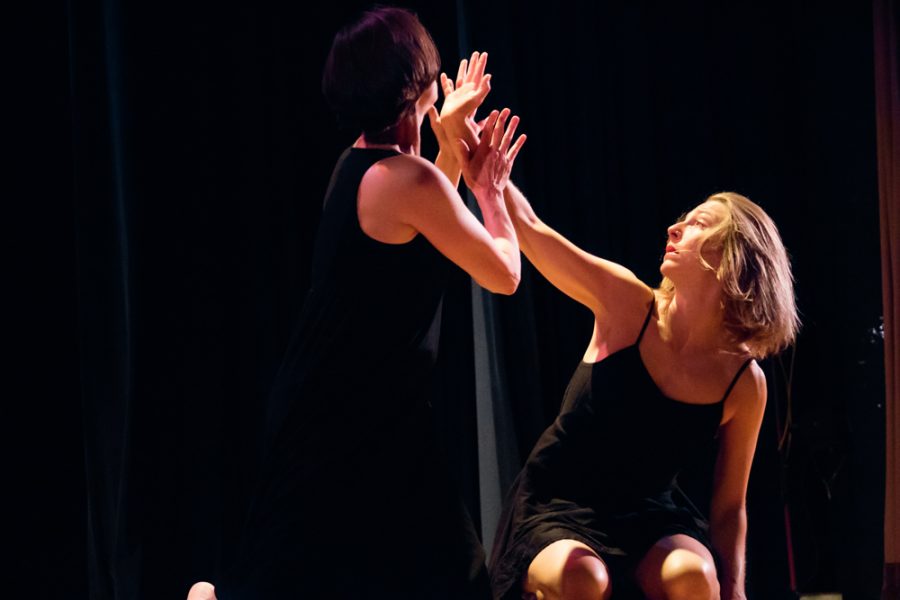
Did you get a kiss this week? If not, you may still be wondering why people were asking for your consent to sit next to you at lunch or to give you a hug. Answer: This past week, the All Students for Consent Club [ASC] hosted its Ask For It campaign.
There were events all week to promote consent on campus in fun and positive ways. From handing out chocolate kisses (asking first, of course), to an event Friday, Sept. 20 on Ankeny Field where people practiced asking for consent, ASC managed to turn some heads.
“We want people to practice consent by asking for permission to sit with someone, to borrow a pen or to hold hands,” said junior George Felton, the co-president of ASC.
According to Associate Dean of Students Barbara Maxwell, ASC has deemed that each month will have a theme, and September’s theme is consent. By advocating for better communication between partners, the ASC is trying to raise awareness about the issue of consent in the hopes of decreasing sexual violence, harassment and misconduct.
On Tuesday Sept. 17, ASC invaded Penrose Library on a mission, armed with bags full of chocolate kisses and pink flyers explaining the Ask For It campaign in detail.
“Hey guys, can I give you some kisses?” said junior Tina Welsh, as she entered a study room on the second floor. The point was to shock people with the double meaning of kiss, chocolate or actual kiss, and then to promote the Ask For It campaign, which also plays on a double meaning. Ask For It stems from the negative phrase “she was asking for it” –– by wearing those clothes, dancing that way, etc. –– but flips it by encouraging people to ask for consent, hence “asking for it.”
ASC members were assigned a floor of the library. They walked up to students busy studying and asked for consent to give them a chocolate kiss. With the kiss accompanied a small handout and an explanation of the kinds of activities and ways to promote consent.
“I was a little nervous. I didn’t know what to expect, but overall I’m glad I said yes. I’m glad she asked first,” said sophomore Brandon Paris, who was one of the many students to receive a chocolate kiss on Tuesday.

Friday’s events included temporary tattoos, group photos and generally plenty of questions being asked. The goal was to make it a fun event, attempting to remove the awkwardness from asking for consent.
“We want people to get involved. A lot of times people don’t get involved if they’re really scared of something. We don’t want people to feel like they’re getting blamed. Instead we want people to feel like they can have a positive, active role in this issue,” said FACE co-president and one of the organizers of this week’s events, sophomore Katie Steen.
According to co-founder and co-president junior Sayda Morales, this is ASC’s first event as a club.
“We are incredibly happy with the turnout, although we do wish more people had shown up to the rally,” said Morales. “What we did achieve was getting the word out there about consent and engaging with the Whitman body in a new and effective way.”
Table toppers have also been scattered throughout the dining halls. They are promoting consent, but in a way that breaks down the heteronormative assumption that only heterosexual men need to learn to ask for consent. The toppers feature a drawing of two outlined gender-neutral faces appearing to be having thoughts, depicted in thought bubbles, about each other. One wants to have sex, the other does not. What makes these table toppers special is that there are four different kinds of situations depicted, each featuring different gender pairs.
“The idea behind that was that things like this can be very anti-male. That is just totally feeding gender roles. And we wanted to switch that up,” said Steen. “This is an issue for everyone. This is an issue for heterosexual people, for bisexual, for pansexual people, for whatever you identify as, this is an issue for you. And just because you’re a female does not mean you don’t have to ask for consent. We just want to break down that narrative that’s very common of the male doing something bad, and being to blame in a heterosexual relationship.”
According to Maxwell, the point is to have fun.
“Our goal is to simply keep asking for consent in intimate situations on people’s mind in a playful, fun way to decrease the awkwardness of it and make asking for it the norm in interpersonal communication,” she said.
By drawing attention to the seemingly simple task of asking for consent, the hope of ASC was to promote a better communication strategy between couples. Turning an awkward situation into a more lively and sometimes silly activity is something that they hope will have a positive impact upon interpersonal communication at Whitman. Many students agree.
“I think that it is a really creative idea. It turns a negative into a positive,” said first-year Lindsay Ross.









